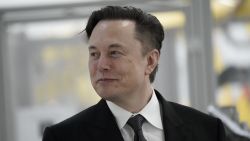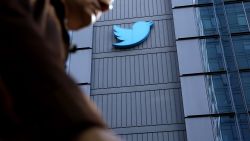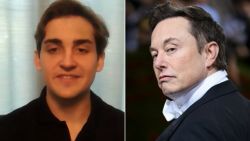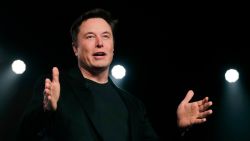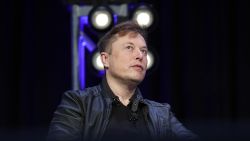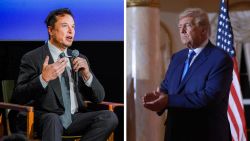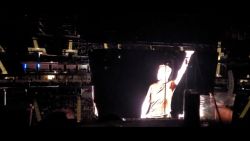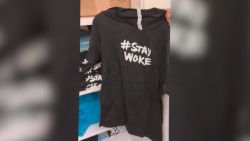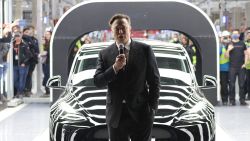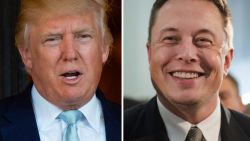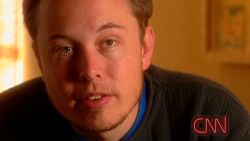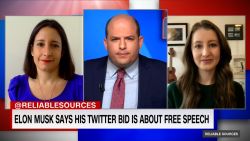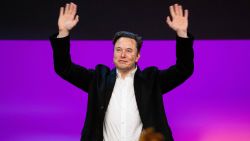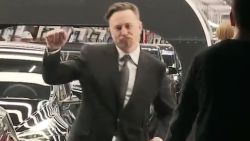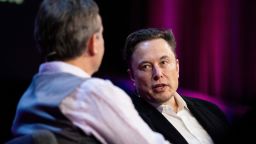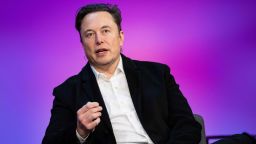Elon Musk wants everyone to believe he really did have the money secured to take Tesla (TSLA) private back in 2018. But a group suing him over that claim say he didn’t have it, and that the SEC and a federal judge agree.
Musk is making the claim as he faces a shareholder lawsuit about a now infamous tweet in which he said he had “funding secured.” At the same time, he’s also bidding to take another tech company, Twitter, private, with a source of funds he has yet to disclose.
The Tesla shareholders who are suing Musk for fraud aren’t happy about his comments. In a court filing on Friday they asked the judge in their case to muzzle the tweet-happy CEO.
The shareholders also said a federal judge found that Musk’s 2018 tweets in which he claimed to have the funding to take Tesla private were false and misleading. Musk eventually settled with the US Securities and Exchange Commission over the tweets, stepping down as Tesla chairman and agreeing to oversight of his social media use.
“I was forced [to lie] to save Tesla’s life and that’s the only reason,” Musk said at the TED conference in Vancouver Thursday. He went on to compare the experience to having someone point a gun to his child’s head.
In the 2018 tweets, the Tesla CEO said he was considering taking Tesla private at $420 a share, and that he had secured the funding to do so. After his tweet, Tesla stock jumped more than six percent, before dropping over the next week. Investors sued the billionaire, alleging Musk’s tweets “caused significant confusion and disruption in the market for Tesla’s stock and resulting harm to investors.”
In the court filing Friday, the Tesla investors who are suing Musk asserted that the judge in the case had agreed with their contention that Musk knowingly made false statements when he tweeted about having funding secured for such a transaction.
The filing refers to an April 1 order by US District Judge Edward M. Chen that does not appear on the docket.
According to the investors’ filing, which was first reported by Bloomberg, Chen agreed that “no reasonable jury could find Musk’s tweets on August 7, 2018 accurate or not misleading.”
Friday’s filing by investors is a motion for a temporary restraining order to prohibit Musk from speaking publicly about the case until after the trial. Lawyers claim that Musk’s public comments can influence potential jurors as he makes an “unsubtle attempt to absolve himself in the court of public opinion.”
“Despite the findings by this Court, the SEC, and his own written consent, Musk has engaged in a high-profile public campaign to present a contradictory and false narrative,” according to the filing.
The motion for the restraining order comes after Musk said publicly at a TED Conference that he did not lie in his 2018 tweet.
At the TED Conference in Vancouver, Musk called the SEC “bastards” with regard to the security fraud settlement he reached with the agency related to the same August 7, 2018 tweet. He doubled down to say that he did have funding secured, and that he only agreed to the settlement because if he hadn’t, banks would have stopped providing capital and bankrupt Tesla.
The updates to the shareholder’s case come after Musk’s shocking bid for Twitter, in which he currently holds a roughly 9.6% stake. Twitter’s board of directors enacted a “poison pill” plan that could make it harder for Musk to take control of the company.
A lawyer for the investors, Adam Apton, told CNN he anticipates the judge’s order will be published soon.
“We look forward to proving the rest of our case at trial and recovering damages on behalf of the class,” Apton said in a statement to CNN Business.
A lawyer for Musk insisted that the Tesla CEO could have taken the company private.
“Nothing will ever change the truth, which is that Elon Musk was considering taking Tesla private and could have,” Alex Spiro said in a statement to CNN Business. “All that’s left some half decade later is random plaintiffs lawyers trying to make a buck and others trying to block that truth from coming to light, all to the detriment of free speech.”
– CNN Business’ Chris Isidore contributed to this report.

